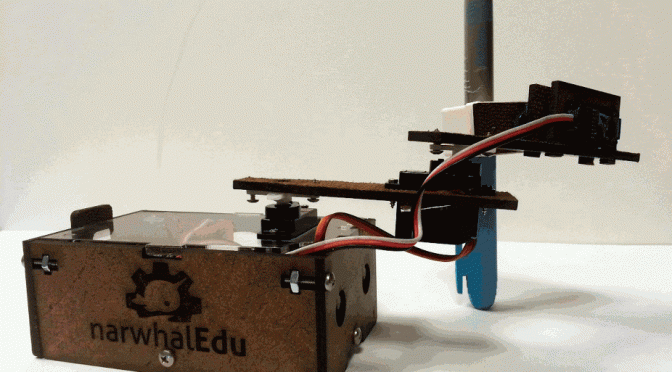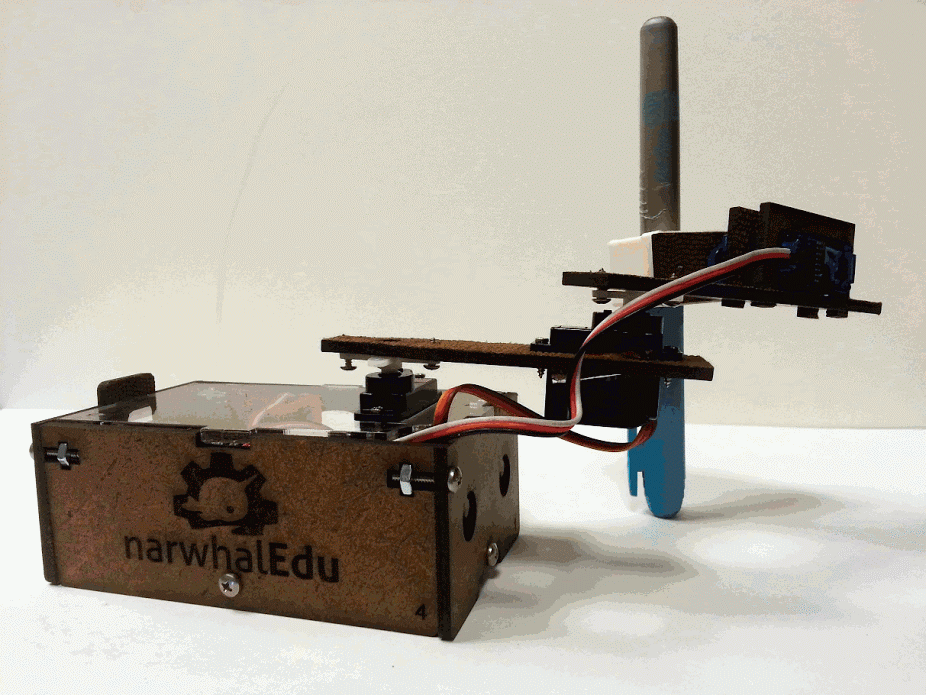Nanowrimo = National November Writing Month. Write 50k words in 30 days, preferably fiction. Obviously, quantity is valued over quality in Nanowrimo. I apologize if you keep reading from here.
~
It’s November and for the first time in a long time I have no homework. BWAHAHA. Side projects ban is going on until the end of the year but writing doesn’t realllllly count as a side project. Right? Right.
EGADS. I… I don’t know what happened. I really struggled to fill in the middle and end and … everything, that’s all I can say. I could write QFN-hating fairies all day, but trying to write a fairy tale with a moral? F* if I know what I’m doing.
I think the real moral of the robot fairytale is that we should all be fairies or something…
Tomorrow I will post the results of my survey about what my friends look forward to in the future, and today I will work on our kickstarter video, and really I blame Lauren Herring and thank her for giving Friday’s topic, “Robot Fairy Tales.” http://thefullereneincident.com/ her blog is great.
Yes, I’m two or three days behind. Well, long as procrastinating on nanowrimo convinces me to get other things done.
—
Hope in the Morrow
Sweet JST Connectors! Fae Andalie stood up and stretched, smoke curling from her fingers as the inorganic mess in front of her teetered, entropy written into its wiring and threatening to burst out of her delicate spellwork. The rabbit-foot in the corner stopped its mad screeching across the strings of the violin as it sensed a mood shift from VIOLINCECORE and settled into a gentle purr, though it had never been the foot to any rabbit. (you might ask — do rabbits purr? they certainly do when fairies pet them). You never knew what you were getting into when you tore into the guts of a Walmae robot, cheap suckers, mass-produced by drones in China before being ferried into the inner chambers of a Kraken for the journey over the Pacific, but oh-so-delicately engineered to be dirt cheap. She’d wanted only the greeting-card functionality of this particular robot, but found that for ease of assembly it had been coded as one micro with the dictionary functionality. And let’s not even get into the thousand-and-one springs assembled in a precise order so that the creation could move three parts of its body with only one motor, making accessing the chip a nightmare of deconstruction. Wouldn’t want it to turn into plain old destruction, after all. Delicious, and entertaining enough to keep her up until dawn!
She had really found the right magic-technology balance in her latest creations, she felt. Employed as a craftsman, she deftly rolled old technology and new magic into one-of-a-kind creations, custom-built for each customer. Her guild, forty-strong, did well plying its wares in the Rottermarkets, where old technology went to rot into new magic. She’d done so well in just the few years since coming to Atlanta that she no longer had to spend time talking to customers, instead receiving a backlog of requests spec’d out in the format she liked.
Ah! Like the latest request. This required some delicate spell-work, indeed. Didn’t get many rabbit robot requests nowadays. Seemed like all anyone cared for nowadays was the resistor-munching goat or the screw-sorting monkey. Rabbits, now, that was someone with some old-fashioned standards for companionship. Or lean meat.
“Huh! You got the QFNs to play along too!” Fae Leya wandered by, chewing on a bit of boggerfot, the smell phasing in and out like a badly tuned radio station. She winced. Never did get the point behind boggerfot. Messed up the brain, that it did. She tried it for a wren’s flight-time straight once (experiment) and twenty moons on still had to deal with the occasional flickers of auditory hallucinations. Cut through her existential crisis quickly, constantly hearing voices telling her to kill herself. Suppose she did stop caring about whatever originally caused her crisis really quickly.
No doubt Leya’s hallucinations were more pleasant. That, or she shuddered to think what he was running from.
“Yessir, was a right pain in the foot I can tell ya.” The rabbit-foot in the corner twitched uneasily, remembering the time it had been pressed into service as a charm-holder while she coaxed her spellwork to cover each of the frickin’ tiny pads UNDER the darned packages. Oh, and there were twenty-two of ‘em too. Lovely.
“Found an old rotary phone the other day. You’re welcome to it if you ever feel like something more gratifying.”
The two reminisced about the lovely pre-machine days when spellwork could be so crude as to only require a smattering of blood or a pint of moonwater, the packages easily readable and the circuits darn hardy and tolerant of changes like running on magic instead of electrons.
He paused on the way out of her workshop. “Hey. Uh. Thanks for the advice.” Leya smiled shyly. caught sight of the little butterfly popping into existing behind his shoulder, and blushed.
Andalie smiled, floating a bit of nectar over to the butterfly. “No problem.” Dealing with the daily harassment of customers trying to peek into their work processes or to inquire if it was done YET was an art-form used to be her specialty, but she was happy to pass on to the newcomers to the guild. The latest class was so polite about it too, especially Leya.
Whistling and entirely oblivious, she went back to work and a pigeon’s flight later a cute little gray-white rabbit was hopping around her workshop. Synthetic fur, naturally, she wasn’t a troll. They insisted on authenticity and were liable to use the deceased’s matter. She’d given up on the greeting-card chip and had devised a neat little spell instead. Rabbits didn’t tend to make a lot of noise, anyway, so the probably-too-ingenious-for-its-own-good spellwork wouldn’t be called on too often.
She stroked the rabbit’s back, then bid it on its way to Processing. She really enjoyed the sillier and cuter requests and bet the workers in Processing did too. Baen was the sweetest of the lot — everyone adored her — and no doubt would get the job to fly on out to the ‘burbs on her homemade broomstick. No doubt her mother had lovingly made it for her by hand, no magic involved. Just the thought of it all made some sweet molasses cookies appear around on her worktable, were they were promptly contaminated by the lead in the solder bits lying around. She sighed and fed them to her rabbit-foot, which commenced playing saccharine songs.
~
Sixteen year-old Marie Anders lived in the suburbs of Atlanta, and like most folks who lived for any period of time down south, owned a rabbit or two. Her whole family had been raised a believer in the old practices, ‘fore all the mad mixing of science and magic that passed for normal nowadays, and they’d kept pets for companionship without any thought to the modern-day uses proper magical training could give them.
She’d gotten her Maybelline about seven years ago now, raised it from a whee kit to prime old age. It’d been her first pet rabbit and she’d loved it ferociously. With the tricks she’d taught Maybelline and her sweet disposition, she’d been the envy of her schoolmates.
When her granny first got sick a year ago, the physician had told her mum it was because of Marie Anders’s rabbit. The rabbit was sopping up spells like nobody’s business due to the runoff from the spellwork cast on her neighbor’s lawn, and something about her granny having an serious allergic reaction, aggravated by that rabbit, to the increasing density of magic around the county. People were like the opposite of circuits — the further back they were made the more poorly they tolerated change.
Her mother hadn’t believed it in the slightest and kicked the physician out of the house (politely). Who’d ever heard of such a notion! They’d boiled orange peels and put vinegar about the house. Granny didn’t get better, but she’d gone right on believing her parents knew what they were doing until her granny ended up in the hospital. Her sister, who was always the scientist in the family, stopped talking to her. She finally started reading some of the publications lying around her sister’s room. Seems like the world had moved on and didn’t care a whit that her family couldn’t wrap its head around what was going on.
She killed her Maybelline that weekend, not knowing to look up local pet services that might operate on the weekend, not trusting she wouldn’t change her mind if she waited. Looked up a video on how to do it. Buried her in the dark well of shadow underneath the apple tree, and bought a cat the next day. Her granny spent a few more weeks getting better and was now back at home on her rocking chair on the porch when Marie Anders got back from school. Her mum apologized to the physician, who now came around for regular checkups, and her sister hugged her and was extra-nice to her for a while. Everything was right, except she —
She had killed her Maybelline. No furry head to pet, no little beating heart that would always love her because she provided such delicious food, no raisins to get it to indulge in weaving figure eights between her legs or to stand on two legs.
She’d moved on pretty fast to taking care of her new cat, but then she had heard of hypoallergenic robotic rabbits wired to be just like you remember them with a minimum of spellwork. After exploring the city some she’d fond the Rottermarkets, found a job and saved up, and now her order had arrived, dropped off by some crazy girl flying around on some dinky broomstick no less! At least the shipping had been fast.
Marie Anders tore open the packaging. High on caffeine, fingers twitching madly, head bopping along to the latest VIOLINCECORE song to hit the radio, she gazed upon her beautiful new robot friend. Well. Fuzzy new robot friend. Intricate, in her eyes her rabbit had finally come back and forgive her for killing it. She fed it some grains and grass, content to listen to her music and watch the rabbit live its life, before finally passing out somewhere between one screech of the violin strings and the next.
In the morning, nausea roiling her stomach, a headache throbbing with her heartbeat, she stared at the shreds of paper strewn about and found only a synthetic rabbit staring at her, eyes alert as it nibbled on some old newspaper. It seemed just like her old rabbit and yet utterly lifeless. Seeing it getting along just fine, as though she hadn’t killed it a few months ago, hadn’t tried to replace it with a cat, hadn’t scrimped for months to afford the faework commission, she knew that the rabbit was utterly incapable of loving her back. Maybelline was gone.
Sobbing, she stood curled around it, not noticing as her tears dripped onto the rabbit and it, agonized by its spellwork which bid it to create happiness in the world, grew hotter and hotter and finally all at once melted and streamed down her legs. Federal regulation N52-115 fortunately meant that as it dripped down her legs, it caused her no pain but only a mild stinging regret and a permanent watery tattoo, silver-grey as her rabbit had been. She finally wandered out into the street and, mind numb, rode the bus until the sun went down, and for the first time she noticed how many people had marks like hers, permanent, unwavering even as they too went to the grave. This chapter in her life had opened and shut, and she no longer liked the story, but she had no other story to live.
~
Real-life rabbits, dear friend, will never recover from the passage of time. You can sink all the love and magic into them that you want, just like everyone else. But they will rot away all the same, corrupted from inside by their own life-force.
Fae Andalie, on the other hand, hummed happily, warm and content in her silky cocoon draped high in the clouds. Her robot rabbits purred sleepily alongside her, providing her all the companionship she had ever known or needed, even as her spellwork bore her unceasingly forth into the night.
—–
NOTES
Oh, the rabbit foot violin… Arthur Ganson, mechanical automata on display at MIT museum.
http://www.youtube.com/watch?v=NXZN7JWCMag
ACTUALLY A FEATHER. Man, I really remembered it as a rabbit foot. But yea, try watching that video with a bunch of your college-aged friends standing around you. It’s a recipe for awkwardness.
Everything is fiction! Fiction, I swear! I most definitely did not ask my parents for a robot cat when I was younger, or be utterly disappointed by it and feel right sorry I wasted my parents’ money on it and didn’t even end up liking it, no sirree. ;__;
May you rest in peace, robot cat.
http://theoldrobots.com/tekno-cat.html





